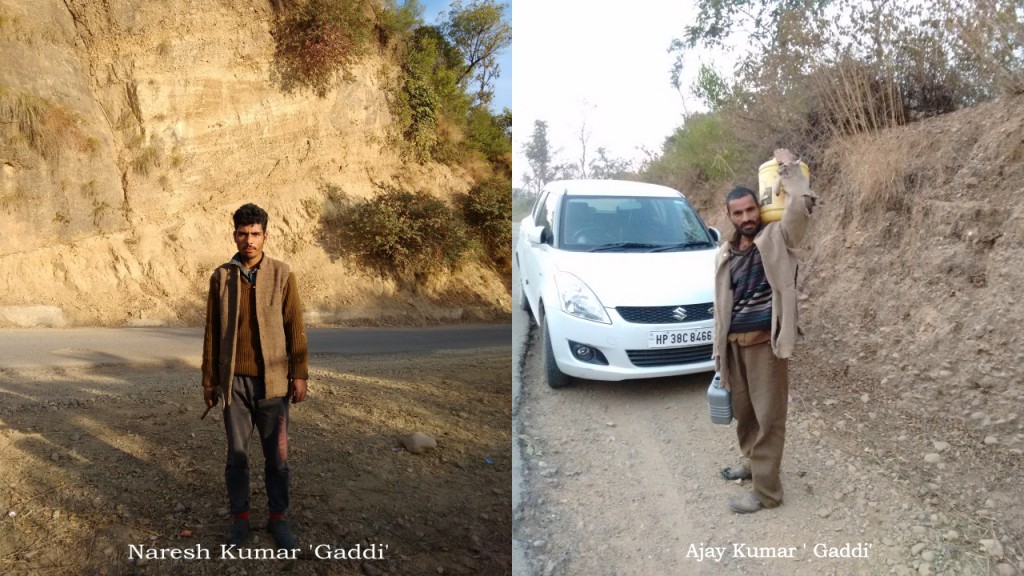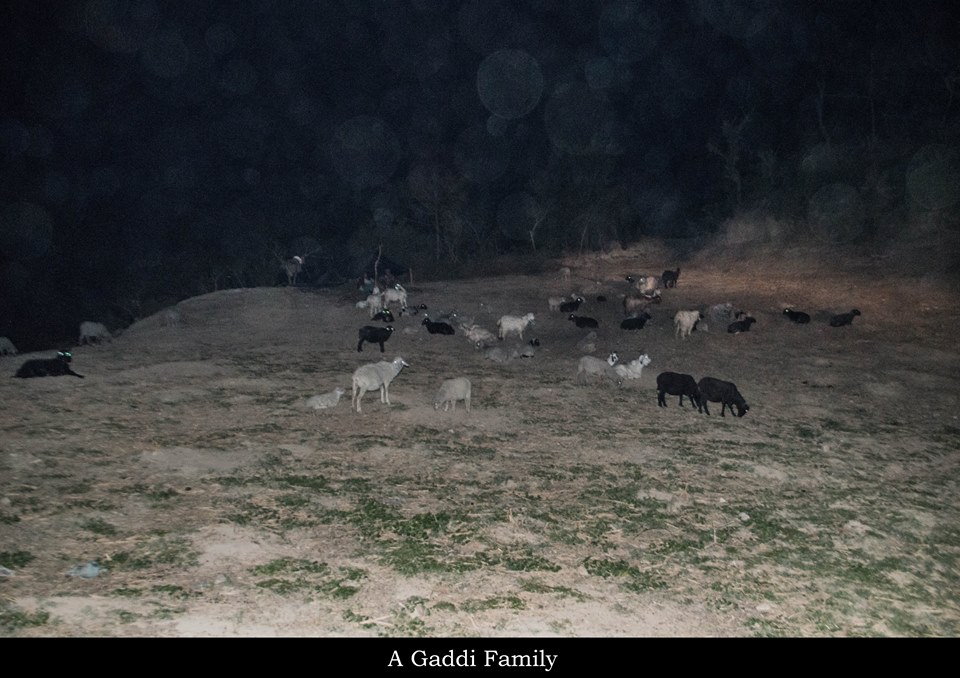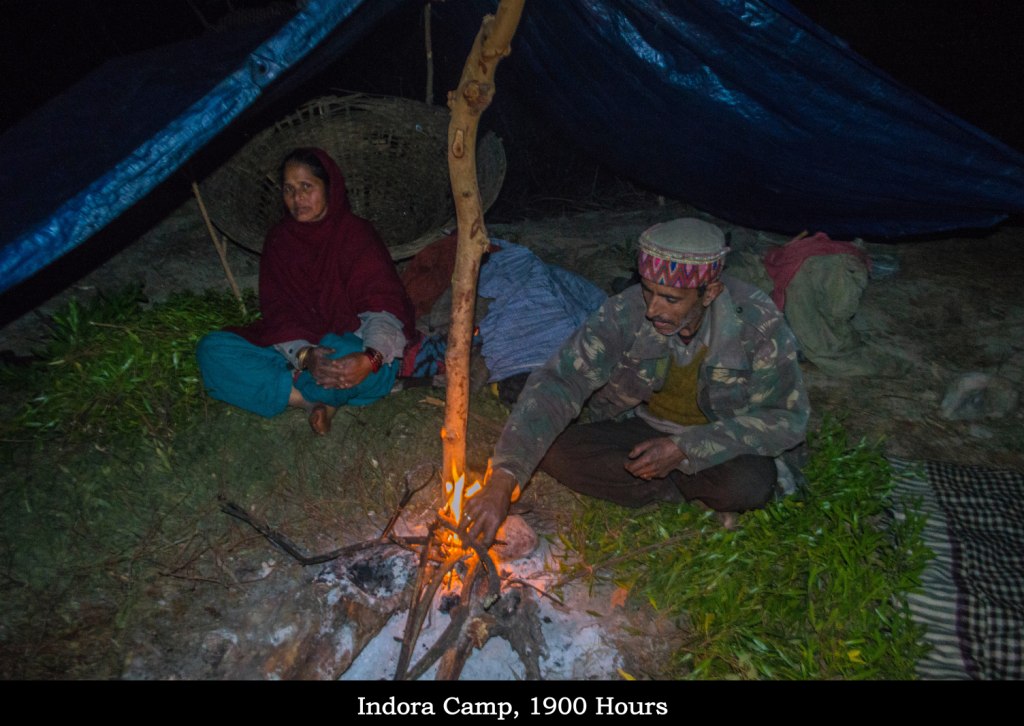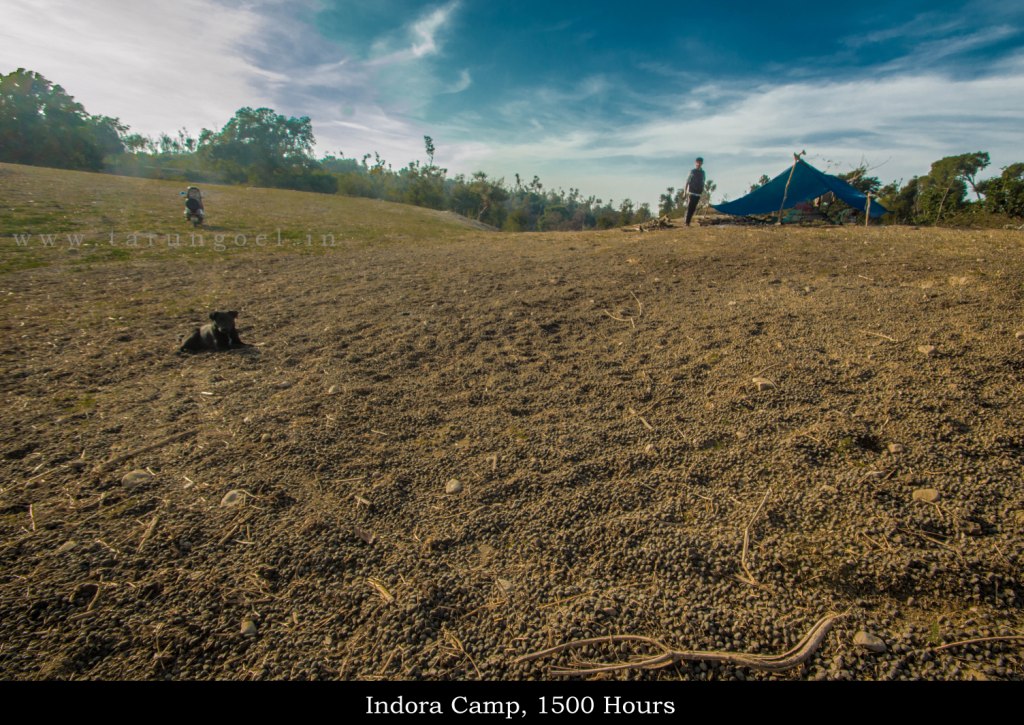Dhauladhar Himalaya, the great Kangra Chamba divide, offers a spectacular view of the valleys down below, on either side of the mountain range. There are as many as 25 passes along the Dhauladhar Mountain Range, that stitch the Kangra Chamba divide in a miraculous fashion.
If you stand atop any of these mountain passes, you can see as far as the plains of Shahpur, Indora, and Pathankot. On our way to Bohar Pass in 2013, we stayed with Daler Singh gaddi. My friends, Rijul and Pandit Ji, kept him awake all night and discussed about life in the mountains and beyond them.
I was interested in their life beyond the mountains. Where do they spend their winters? How much time do they spend with their families?
Daler Singh replied, ” We just can’t leave these mountains. Be it winters or the summers. If the mountain passes watch over the valley plains, the valley plains down below also yearn for these mountains. We camp at places where from the entire Dhauladhar is visible.”
I didn’t believe him then. Not until I saw this myself.

The White Mountain Range
From Left to Right: Baleni Pass, Minkiani Pass, Gaj Pass, Bhimgasutri Pass, Indrahar Pass, Kundli Pass, Toral Pass, and Talang Pass visible in the photograph.
The mountains and these Kangra plains seem inseparable. And that’s where Daler Singh and hundreds of other gaddis’ spend their winters. Indora, Jawali, Nurpur, Jasur, Pathankot; you’ll see gaddis’ camped in fields by the roadside.
Sheep Manure serves as a wonderful drug for agricultural land. Earlier, people used to invite gaddis’ to their fields so that the soil nutrients are replenished in minimum possible time. But gradually these makeshift tents by the roadside are gradually diminishing because people are not interested in cultivation anymore. Paddy and Wheat fields have been replaced by water kingdoms and marriage palaces. Few years down the line, 10 may be, we won’t find any makeshift tents, neither in the Kangra plains nor on the meadows atop the mountains.
In Search of Daler Singh
Pandit Ji clicked a photograph with Daler Singh and promised to deliver it at his winter camp, which we were told was somewhere near Indora.
Indora is a small village in Kangra bordering Pathankot. Indora is famous for its ancient Shiva Temple and the Battle of Hydaspes, which forced Alexander to give up his conquest of the world.
There are numerous gaddi camps in and around Indora but the possibility of meeting a gaddi family is bleak in the daytime as they wander in the jungles with their livestock. So while I roamed around looking here and there for them, I came across an unmanned herd of sheep hiking its way up from the jungle. A familiar figure appeared draped in white coat and my eyes lit up instantaneously.
Naresh Kumar gaddi emerged out of the jungle and we both were equally surprised to see each other.
Like their grazing grounds in Lahaul and Chamba, gaddis’ have fixed routes to reach their grazing rounds. Those who cross Baleni or Bohar (Dhauladhar) would walk across Kugti or Kali Cho Pass (Pir Panjal). Indrahar and Kundli Pass are combined with Chobiya. Lastly, gaddis’ from Ziya-Palampur would choose Talang and Kugti Pass.

Naresh and Ajay
Naresh Kumar (27) confirmed that Daler Singh is also camped in the jungles of Indora. To reach him, I would have to walk deep inside the jungle so I avoided doing that. Moreover, I didn’t have the promised photograph with me, so I decided not to go.
As of now, target has been locked.
I chatted with Naresh Kumar for a while and bade him goodbye. A few hundred meters ahead, the gaddi camp that I had spotted earlier was now abuzz with activity. Sheep were coming back to their base and for a second it looked like that we were about to embark on one of those startling Himalayan journeys.
A blue tarpaulin cloth supported by two bamboo poles to make it look work like a tent. Dry wood kept neatly outside the tent. A small shepherd dog resting outside the tent barking at the slightest noise.
The sheep were followed by their masters. A male and , surprisingly, a female too. Munshi Ram (52) and his wife, natives of the Kareri Village in Dharmshala appeared out of the dark and welcomed me with a warm smile.


Munshi Ram with his wife

Indpur Dera, Indora
It’s not common to see womenfolk at gaddi camps while in transit. But Munshi Ram had no other choice as his partner had an emergency to attend to back home and his sons wouldn’t join him in his business. A father of two kids, Munshi Ram first came to these mountains in 1969 when he was just six years old. Since then, he has never missed a chance to step out with his sheep into the wilderness.
His two sons want him to sell his livestock and settle for a MNREGA type job. Munshi Ram and his wife believe that whatever little they have is enough for them. Far better than digging and filling the same hole over and over again, quips his wife.
Meanwhile, its getting dark and I decide to bid them goodbye. The sheep have gathered around the fire and some of them are even trying to get a seat inside the tent. Winters in the plains of Kangra could be as freezing as the nights atop the Dhauladhar passes. And this is one of those days.
As I stand up to leave, Munshi Ram asks me whether I like my tea sweet?
“I assume your choice of tea is same as ours. Those who climb these mountains always like their tea sweet”, says a smiling Munshi Ram.
I couldn’t say no.